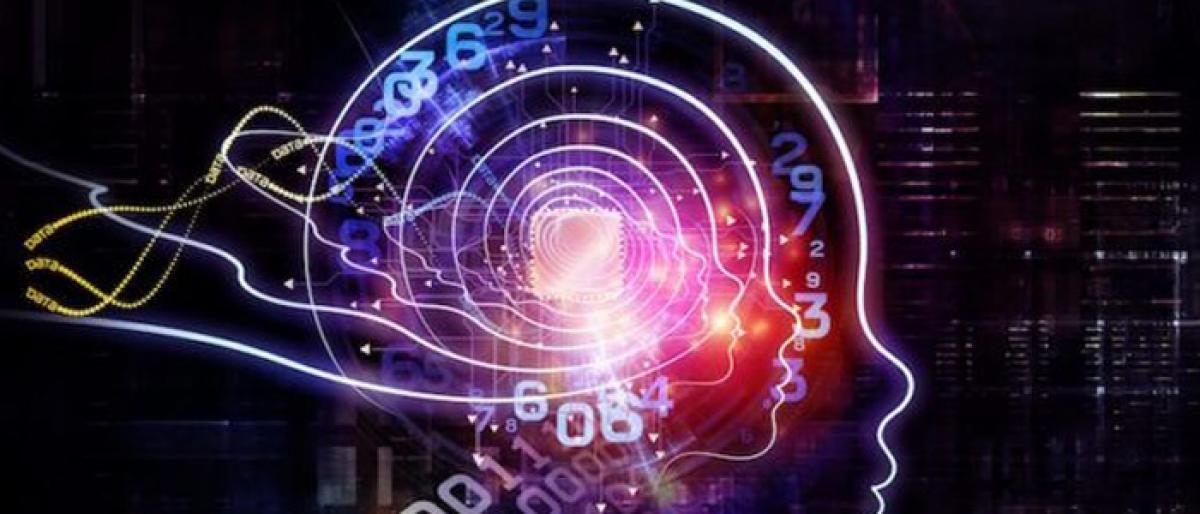Global race for AI hotting up

Now, more than ever before, the upheavals of the past weeks have left many disappointed Strategies on how best to navigate the latest upheaval range from focusing on top executives\' political connections to analysing debt levels and the growth potential of the companies involved.
Now, more than ever before, the upheavals of the past weeks have left many disappointed Strategies on how best to navigate the latest upheaval range from focusing on top executives' political connections to analysing debt levels and the growth potential of the companies involved.
British science fiction writer and futurist, Arthur C Clarke once said, “any sufficiently advanced technology is indistinguishable from magic.” Artificial Intelligence (AI) brings in a host of real-world applications which had earlier merely been a subject of science fiction novels or movies. AI empowered cars are already under rigorous testing and they are quite likely to ply on the roads soon.
The social humanoid robot Sophia became a citizen of Saudi Arabia in 2017. Apple’s intelligent personal assistant, Siri, can receive instructions and interact with human beings in natural language. Autonomous weapons can execute military missions on their own, identify and engage targets without any human intervention.
In the words of John McCarthy, AI, is the “science and engineering of making intelligent machines, especially intelligent computer programs.” As a burgeoning discipline of computer science, AI enables intelligent machines that can execute functions, similar to human abilities like speech, facial, object or gesture recognition, learning, problem solving, reasoning, perception and response.
The term AI was coined in 1956, and the early research in the 1950s was confined to problem solving and symbolic methods. The interest of the US Department of Defence led it towards mimicking basic human reasoning during the 1960s. The use of ‘neural networks’ dominated the period from 1950 to 1970s. AI research further graduated towards ‘machine learning’ algorithms from 1980s till around 2010.
The US Defence Advanced Research Projects Agency (DARPA) developed intelligent personal assistants in 20032 , long before Siri, Alexa or Cortana came into existence. AI has made inroads to automation and decision support systems to complement or augment human abilities.
The technology of AI in the present times is witnessing ‘deep learning’. The futuristic applications such as self-driving cars rely heavily on deep learning and natural language processing. As an emerging technology segment, deep learning uses neural networks and leverages advancing computing power to detect complex patterns in large data sets. Strides in supercomputing and Big Data analytics are further enhancing AI applications relating to advanced training or learning.
Labs to the Real World
AI enables machines to think intelligently, somewhat akin to the intelligence human beings employ to learn, understand, think, decide, or solve a problem in their daily personal or professional lives. Intelligence is intangible. The present generation of computing systems perform generation, storage and analysis of data.
AI enhances the ability of computer systems to learn from their experiences over time, makes them capable of reasoning, perceiving relationships and analogies, helps solve problems, as well as respond in natural languages and adapt to new conditions…
The present wave of enthusiasm in AI is backed by the industry, with Apple, Amazon, Google, Facebook, IBM, Microsoft and Baidu in the lead. Automotive industry is also unleashing benefits of AI for self-driving cars, led by Tesla, Mercedez-Benz, Google and Uber.
Prominent advances have been made in facial recognition and verification, with algorithms developed by Google for GoogLeNet, Facebook for DeepFace and Microsoft asFace API for Azure. Facial detection has instated deep interest from law enforcement and security agencies. China is known to be building a massive facial recognition system, connected with its surveillance camera networks, to assist in detecting criminals and fugitives.
Potential Benefits and Risks for India
India fares average in the surging competition for AI technology development. Research output from India in international journals ranks at 7, and the numbers are one fifth of that of China. There is no clearly stated policy document or vision statement for AI development.
However, in February 2018, the Department of Defence Production has constituted a 17-member task-force to study the use of AI for both military applications and technology-driven economic growth, with representation from the National Cyber Security Coordinator, armed forces, Indian Space Research Organisation, Atomic Energy Commission and Ministry of Defence.16 The potential benefits are plenty, from basic sectors like healthcare, governance and economy to the specialized ones like foreign policy and defence and security.
As India is poised for reforms in governance, AI can actually help with process optimization and cost savings for the government, in addition to solving some strategic problems or assisting in decision making.
Economic growth is vital for development, and the next generation of economic growth is anticipated to be fuelled by technologies relating to big data, block chain, quantum computing and AI. These game changing technologies will spur innovation, create value for the investors, generate specialized job domains and as a result, propel economic growth…
Technology affordability
Defence and foreign policy decisions are based on immense cognitive and intangible skillsets. As AI evolves further, it could play a vital role in analysing large data sets, intelligence inputs, imagery from satellites or other airborne platforms, scenarios or even draw cognitive deductions from the historical records of foreign policy decisions or deployment of military resources during previous wars.
Such detailed analyses could also supplement individual and organisational ability during bilateral or multilateral negotiations, and military standoffs or geopolitical conflicts. AI is also being used for crime prevention as facial detection and recognition technology has made strides.
Akin to any advanced technology, AI also has its own set of risks. AI has to meet the first and foremost challenge of acceptability with the users from the government, public sector and the armed forces, or even the private sector. As users of AI, their interest in the technology augmenting their own ability, and not posing a threat, is quite pertinent.
Technical competence in this fast-paced sector, primarily in the case of government, could be a road block. AI can better adapt to the goals and expectations of the Indian decision makers, if the technology development is indigenous. Foreign dependence in this case would be detrimental and unproductive.
The first meeting of the Convention on Certain Conventional Weapons group of governmental experts (GGE) on lethal autonomous weapons systems was held in November 2017 under the chairmanship of India.17 India has abundant diplomatic experience in arms control, which possibly AI algorithms can ‘deep learn’ and simulate to chart out a better arms control strategy for LAWs.
More than a technology developer or consumer, India can play a vital role in defining the multilateral rules of the road and help setting up of best ethical standards to dissuade any arms race in LAWs, ensuring safe and beneficial Artificial Intelligence for all.
By: Munish Sharma
(Courtesy: idsa.in; writer is Consultant at IDSA. Views are personal)








